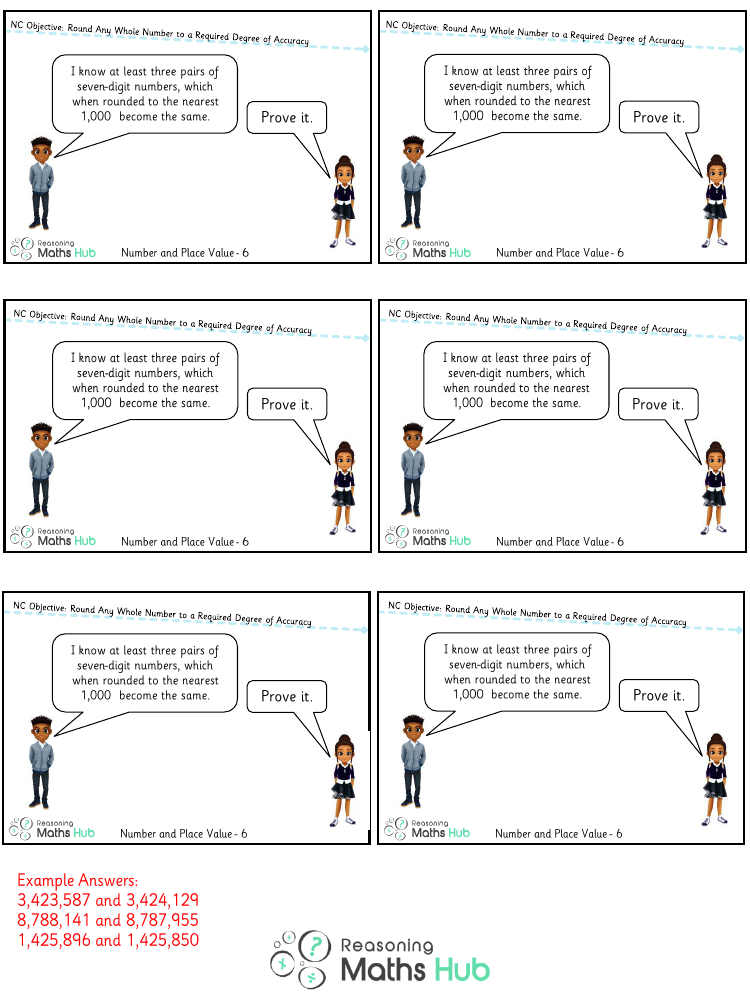Round Any Whole Number to a Required Degree of Accuracy 7 - Reasoning

Maths Resource Description
Rounding whole numbers to a required degree of accuracy is an essential mathematical skill that enables students to approximate values for ease of calculation and understanding. This concept is particularly useful when dealing with large numbers or when a precise figure is not necessary. In this lesson, students are encouraged to use reasoning to round numbers to the nearest ten, hundred, thousand, or any other place value as specified. The process involves looking at the digits in the number and determining whether the number should be rounded up or down based on the value of the digit in the place immediately to the right of the place to which they are rounding.
For instance, when rounding to the nearest ten, if a number ends in a digit that is 5 or more, the number is rounded up, and if it is less than 5, it is rounded down. Students are tasked with applying this principle to various whole numbers, justifying their reasoning and explaining their thought process. This activity not only reinforces their understanding of place value but also enhances their critical thinking skills. By engaging in reasoning tasks, students learn to communicate their mathematical thinking clearly and to understand the practical applications of rounding in everyday contexts.